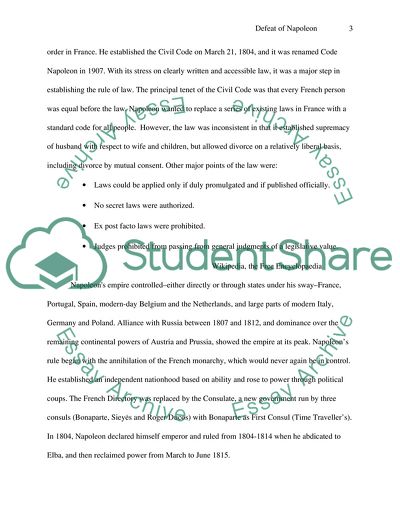Cite this document
(Why Was France Ultimately Defeated between 1812 and 1815 Term Paper, n.d.)
Why Was France Ultimately Defeated between 1812 and 1815 Term Paper. Retrieved from https://studentshare.org/history/1705287-why-was-france-ultimately-defeated-between-1812-and-1815
Why Was France Ultimately Defeated between 1812 and 1815 Term Paper. Retrieved from https://studentshare.org/history/1705287-why-was-france-ultimately-defeated-between-1812-and-1815
(Why Was France Ultimately Defeated Between 1812 and 1815 Term Paper)
Why Was France Ultimately Defeated Between 1812 and 1815 Term Paper. https://studentshare.org/history/1705287-why-was-france-ultimately-defeated-between-1812-and-1815.
Why Was France Ultimately Defeated Between 1812 and 1815 Term Paper. https://studentshare.org/history/1705287-why-was-france-ultimately-defeated-between-1812-and-1815.
“Why Was France Ultimately Defeated Between 1812 and 1815 Term Paper”, n.d. https://studentshare.org/history/1705287-why-was-france-ultimately-defeated-between-1812-and-1815.


